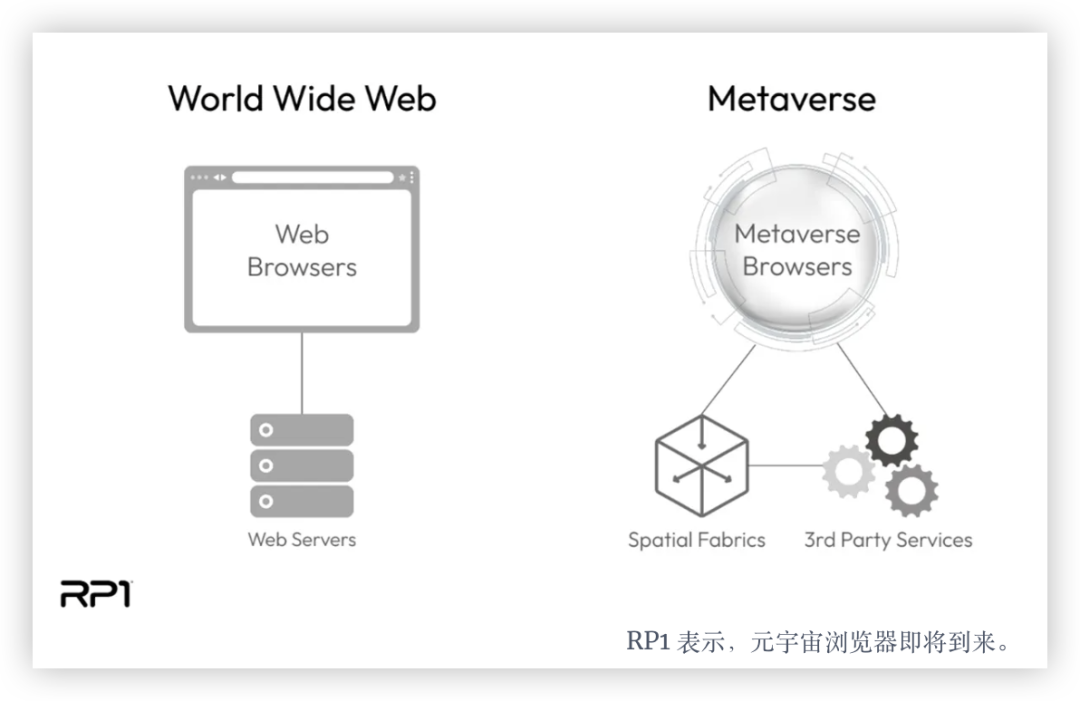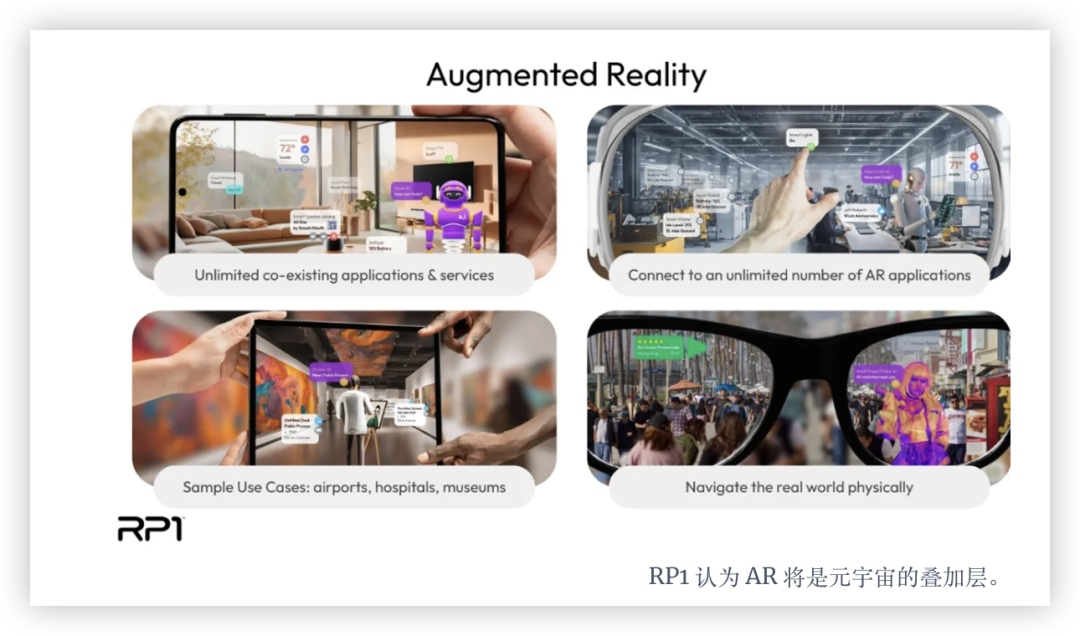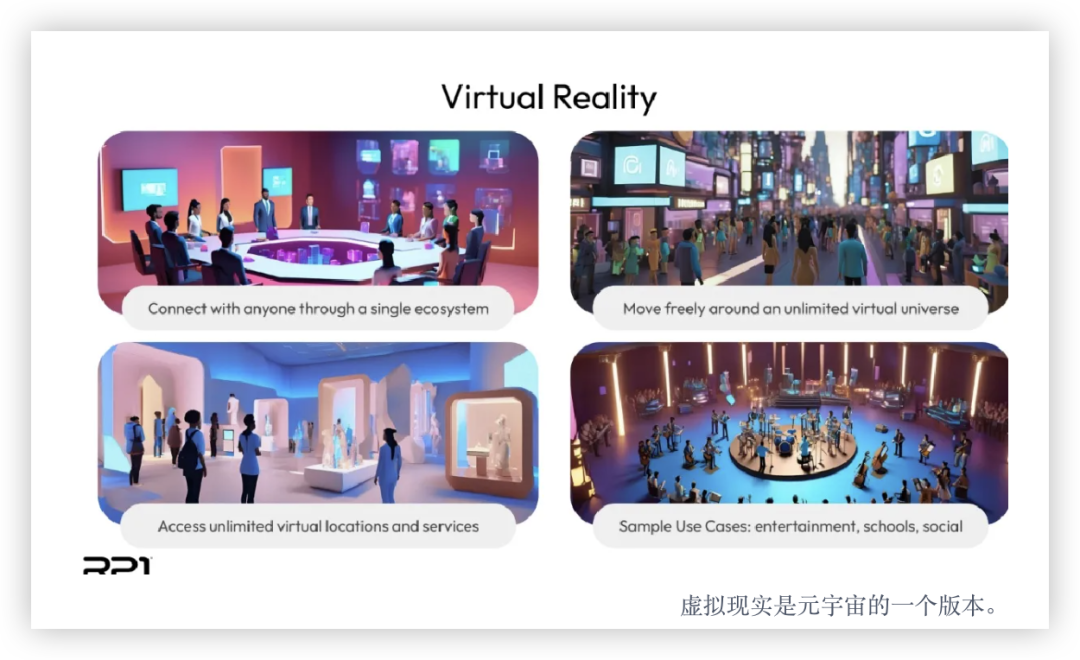Does the Metaverse Need Its Own Browser? This Company Wants to Create the First Metaverse Browser!
Hello everyone, I'm the Metaverse Detective. Have you ever thought about this: if one day, we put on our VR glasses ready to explore the metaverse, only to find there's no universal entry point like a browser, and each platform is like an isolated app, making it a hassle to go anywhere - doesn't that feel like going back to the prehistoric era of dial-up internet?
Recently, a company called RP1 proposed an exciting idea at the Augmented World Expo 2025 in Long Beach, California: The metaverse needs its own browser! Just like how we can't surf the internet without Chrome or Safari today, the future metaverse needs a "passport" that allows us to freely navigate between different virtual worlds.

Is RP1's Idea Feasible?
RP1's CEO Sean Mann says that the metaverse is still in its early stages, just like the early internet, with no standards and messy entry points. To experience different metaverse applications, you have to switch between different platforms - isn't that annoying?
So, what RP1 wants to do is create a metaverse browser like Chrome, connecting users with all the good stuff in the metaverse, enabling seamless 3D space navigation and interaction. Simply put, you can think of it as a "metaverse navigation map" - with it, you can search and go wherever you want, quick and easy!
What Can We Do With a Metaverse Browser?
This sounds pretty cool, but what exactly can it do?
-
• Connect Everything : With it, various virtual worlds, games, and applications can be connected - just click to play whatever you want, hassle-free!
-
• Seamless Experience : Freely navigate between different virtual worlds without repeatedly logging in or downloading, the experience is awesome!
-
• Open Standards : This thing is built on open standards, allowing developers to freely develop and publish content, making the metaverse more vibrant!
RP1 is also targeting augmented reality (AR). They believe that future AR glasses will need a "metaverse browser" too, so we can see virtual information in the real world and interact with virtual environments. Imagine walking into a store with AR glasses, and product information and promotions appear right before your eyes - doesn't that sound amazing?

RP1's Ambitions and Challenges
Of course, RP1 will face many challenges in achieving this goal.
First, the metaverse is still in development, with no established rules. RP1 needs to work with other companies and organizations to establish standards for the metaverse browser.
Also, there are many technical challenges to overcome. How to handle many users simultaneously, how to ensure smooth virtual world operation, how to protect everyone's privacy, etc. - these are all major issues that need to be solved.
However, RP1 has already started taking action. They've joined the Metaverse Standards Forum, actively participating in metaverse standard development. They've also demonstrated some technical demos, such as fitting many people into the same virtual space and achieving seamless switching between AR/VR applications.

Who Will Control the Future of the Metaverse?
Actually, RP1 isn't the only company wanting to create a metaverse browser. Tech giants like Meta, Microsoft, and Apple are also racing to establish their presence in the metaverse, and they might launch their own "metaverse browsers" someday.
Whether the future metaverse will be controlled by a single entity or form an open, shared ecosystem remains to be seen. But one thing is certain: the metaverse browser will definitely drive metaverse development, making it easier for more people to enter this imaginative digital world.
Just as the internet's popularity couldn't have happened without browsers, the metaverse needs a good "browser" too. RP1's attempt might just help us open a door to the future world!
分享文章
3篇相关文章
2025, Is the Metaverse 'Dead'? Nvidia and Roblox Smile Silently!
2025-12-30
Fervor recedes, those swimming naked scatter. When Roblox stops talking about Metaverse, when Nvidia quietly profits in factories, the real metaverse is just beginning.
Tearing Open The Metaverse's Blind Spot: Disabled Users Give The Most Unexpected Answer
2025-11-26
Who does the metaverse really belong to? While many dream of a boundless digital world, a new study reveals how disabled people—often invisible in physical spaces—are reshaping what inclusion means online.
Metaverse Travel: A Virtual Adventure About To Rewrite Your Worldview
2025-11-26
The metaverse travel market is surging toward an estimated $276.41 billion by 2034 with a 41.8% CAGR, signaling a revolution in how we explore the world.